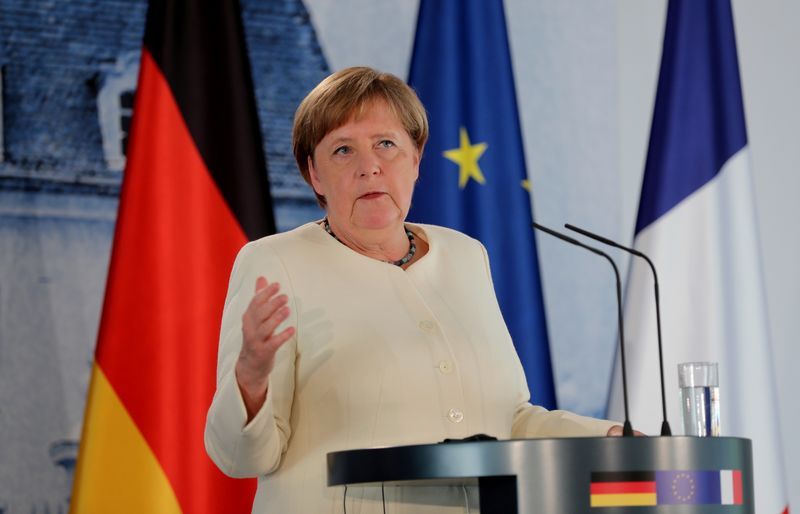
German Chancellor Angela Merkel
BERLIN, July 1 (NNN-AGENCIES) — Chancellor Angela Merkel aims to strengthen a divided European Union and help its hard-hit economy recover from the coronavirus pandemic when Germany takes over the rotating presidency of the 27-member bloc on Wednesday (July 1).
Critics have in the last three months raised questions about the future of the bloc as national borders shut and each state resorted, at least initially, to national policies to tackle COVID-19, which has killed more than 100,000 people in the EU.
Merkel, who helped steer the EU through its debt and migrant crises, has stressed the need for solidarity in overcoming the COVID-19 crisis.
“During the German EU Presidency we will do everything in our power to master this task together in a forward-looking way and to make Europe strong again,” the government said in a draft of its six-month presidency programme, dated June 8.
With Europe facing its deepest recession since World War Two, it must first agree on a multi-year budget of more than 1 trillion euros and also on European Commission proposals for a recovery fund to help revive economies hardest hit, notably Italy and Spain, at a summit on July 17-18.
This is no easy task.
Daniela Schwarzer, director of the DGAP foreign policy think-tank, said the health and economic crises would probably deepen social and political tensions and internal divisions.
“Still, Berlin must help make 2020 the year in which the EU gets set up to cope with the future,” she said, adding the economic recovery should advance major transformations in digitalisation and green policies through European projects.
Germany also wants the EU to better protect itself from pandemics, coordinate more on health policy and agree on a mechanism for common border management.
Also on the agenda is clarifying the future relationship with post-Brexit Britain, especially as London rejects any extension of negotiations on a trade deal beyond 2020.
Relations with Beijing, including making progress on an EU-China investment deal, will loom large. Foreign Minister Heiko Maas said on Monday an EU-China summit in Leipzig which was cancelled should be rescheduled as soon as possible.
The EU is also concerned by growing tensions between China and the United States, which under President Donald Trump and his ‘America First’ agenda has proven an erratic and often critical ally for Europe. — NNN-AGENCIES





